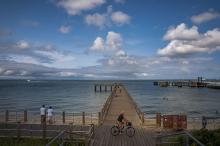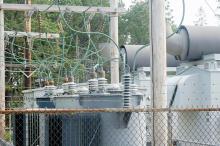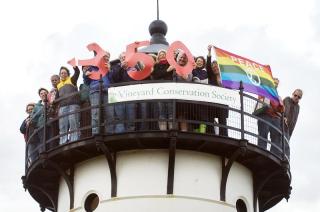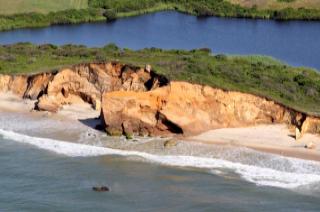Climate change
2014
When I heard about the People’s Climate March in New York city, I just had to go. Now I am a grandmother. I needed to do this for my five grandkids.
More than 200,000 people are expect to converge on Central Park West in New York city on Sunday for the People’s Climate March. At least 22 of them will be from the Vineyard. Buses traveling to the march from Cape Cod are already full with a wait list.
2013
Have you been noticing the reports since Hurricane Sandy, consistently, nearly every week, all over the world — of very extreme weather events and conditions? If you’ve been denying yourself the opportunity to keep up on the details, now would be a good time to break the habit.
As rapid erosion continues to threaten the Gay Head Light, a possible solution emerged this week to help mitigate the situation as the town embarks on a complicated, longer-term project to move the lighthouse.
2012
In following the news coverage of Hurricane Sandy, I was struck by a strange reversal in reporting from before and after the storm. In the days leading up to landfall, the effect of climate change on the likelihood, strength or impacts of the storm was largely ignored; in accounts of the damage post-Sandy, the subject of climate change has been routinely raised.
As drastic erosion continues to eat away at Chilmark’s south shore, town officials this week expressed grave concern for public safety and impeded access to Lucy Vincent and Squibnocket beaches. The Chilmark board of selectmen also approved a study for the extreme Upper Chilmark Pond, known as Upper Upper Chilmark Pond to some, for a possible dune restoration project.








